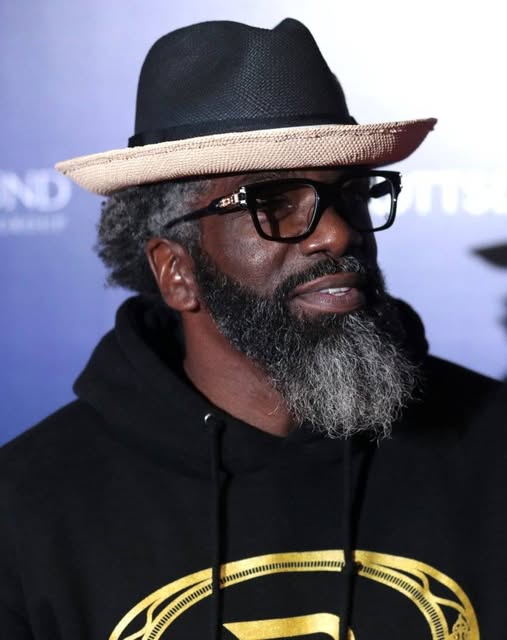In a move that has reignited the passion of the Miami Hurricanes fanbase and signaled a renewed commitment to the program’s defensive identity, the University of Miami has officially welcomed back one of its most iconic alumni: Ed Reed. The Pro Football Hall of Famer and longtime NFL standout is returning to Coral Gables as the Senior Defensive Advisor, a role specifically crafted to leverage his unique football acumen, deep ties to the program, and unmatched leadership skills.
Reed’s return is not just symbolic—it’s strategic. The Hurricanes have been searching for the right blend of tradition and innovation, of heart and discipline, to return to national prominence. Bringing back Reed, who embodies the swagger, toughness, and pride that once made “The U” the most feared name in college football, is a clear signal that Miami intends to restore its legacy by reconnecting with the roots that made it great.
For many, Reed’s presence on the sidelines evokes a golden era of Hurricanes football. As a dominant safety from 1997 to 2001, Reed was the vocal and emotional leader of a team that was brimming with NFL talent. He helped guide Miami to a national championship in 2001, widely regarded as one of the most talented college football teams in history. His instincts, playmaking ability, and intensity made him a generational player. He left the program as its all-time leader in interceptions, a record he still holds, and became a first-round pick of the Baltimore Ravens in the 2002 NFL Draft.
Reed’s return to Miami is not his first foray into coaching or advising within the program. In 2020, he was appointed as Chief of Staff under former head coach Manny Diaz. While the role was largely administrative, Reed’s influence on the locker room and defensive culture was evident. Players revered him, alumni praised his involvement, and fans clung to the hope that his presence could spark a cultural shift. Unfortunately, structural limitations of that position hampered his direct involvement with coaching or schematics.
This time around, things are different. The Senior Defensive Advisor role grants Reed greater access to team meetings, player development sessions, and the defensive coaching staff. While he will not carry a headset or call plays, his mentorship and evaluative insights will influence weekly game plans, defensive strategies, and player accountability. It’s the kind of position tailor-made for someone who thrives on teaching the finer points of football and inspiring excellence through example.
Head coach Mario Cristobal, himself a former Hurricane lineman and national champion, was instrumental in bringing Reed back into the fold. Cristobal has consistently emphasized building a culture rooted in physicality, discipline, and tradition. In Reed, he has a trusted lieutenant who not only understands that vision but has lived it. The move also serves as a bridge between the program’s storied past and its ambitious future.
“Ed Reed is a Cane through and through,” Cristobal said in a university press release. “He’s a fierce competitor, a relentless leader, and someone who raises the standard of everyone around him. We are thrilled to have him back in a more impactful role and know that his presence will benefit our players, our staff, and our program as a whole.”
The impact on recruiting could also be significant. High school athletes may not have seen Reed play live, but his reputation still resonates. He is regularly cited as one of the greatest safeties of all time, a Super Bowl champion, nine-time Pro Bowler, and one of the most instinctive defenders ever to grace a football field. Having someone of his stature engaged in the day-to-day operations of the team will undoubtedly impress prospects and their families.
For the current players, Reed’s presence is nothing short of inspirational. Linebackers, safeties, and corners now have direct access to one of the most cerebral defenders the game has ever seen. His ability to read offenses, disguise coverages, and communicate pre-snap adjustments became the stuff of legend during his time with the Ravens. That knowledge is now being passed down to the next generation of Hurricanes.
Junior safety Kamren Kinchens, one of the team’s top defensive playmakers, expressed his excitement on social media following the announcement. “This is legendary. Having Ed Reed in the building every day? That’s greatness we get to learn from.”
Reed himself has remained humble but energized about his return. “The University of Miami means everything to me,” he said in a brief interview with local media. “It’s home. I’ve always said I’d come back and help build this program the right way. This isn’t about me—it’s about these young men, this coaching staff, and the future of this great university. I’m just here to help however I can.”
His commitment to the Hurricanes program has never wavered. Even during his playing days with the Ravens, Reed returned to campus frequently in the offseason. He mentored players informally, trained on campus, and made himself available to the coaching staff. Since retiring from the NFL in 2015, he has explored various roles across football—from assistant coaching stints to his brief appointment as head coach at Bethune-Cookman, a tenure that was short-lived but reflective of his desire to lead and mentor.
While that chapter may not have unfolded as Reed envisioned, it undoubtedly provided him with greater perspective on the challenges and nuances of program management. That experience, paired with his Hall of Fame pedigree, makes him uniquely suited for a senior advisory position at Miami—where he can influence without being tethered to the grind of full-time coaching.



